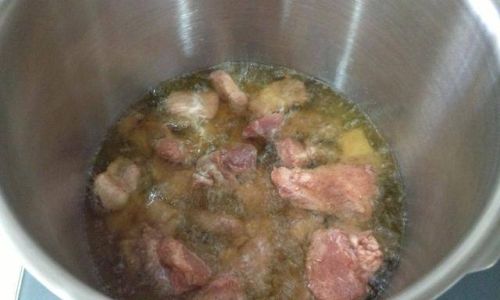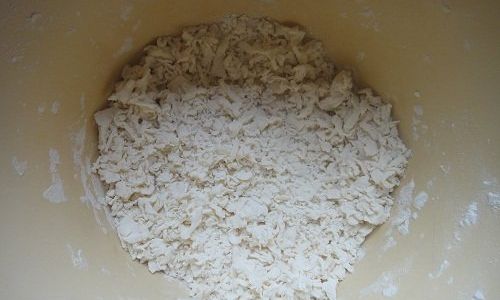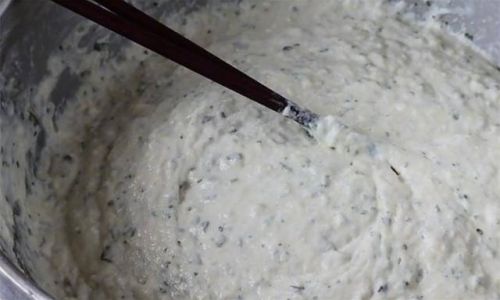Introduction
The culinary world is a vast expanse of flavors, techniques, and traditions that have evolved over centuries. Among these, marinating meat is a practice that enhances its taste, texture, and overall eating experience. Marinades, typically a mixture of acids, oils, herbs, spices, and sometimes sugars, penetrate the meat, tenderizing it and adding layers of complexity to its flavor profile. However, the question arises: is meat that has been marinated for two to three days still safe to consume? This article delves into the intricacies of meat marination, the safety concerns associated with prolonged soaking, and guidelines to ensure that your marinated meat is both delicious and safe to eat.
Understanding the Marination Process

Marination is a preservation and flavor enhancement technique primarily used for meat, fish, and poultry. The primary components of a marinade work synergistically to achieve several goals:
- Tenderization: Acids like vinegar, lemon juice, or wine break down proteins in the meat, making it more tender.
- Flavor Infusion: Herbs, spices, and aromatic oils add depth and complexity to the meat’s taste.
- Moisture Retention: Oils and sometimes dairy products help to coat the meat, locking in moisture during cooking.
- Preservation: The acidic environment can inhibit the growth of harmful bacteria, albeit temporarily and to a limited extent.
The duration of marination varies depending on the type of meat, its thickness, and the desired flavor intensity. Generally, meats marinated for a few hours to overnight are considered optimal. However, some recipes call for longer marination periods, which leads us to the central question of this discussion.
Safety Concerns with Prolonged Marination
When meat is submerged in a marinade for an extended period, several factors come into play that can affect its safety for consumption:
-
Bacterial Growth: While acids in marinades can slow bacterial growth, they do not completely stop it. Prolonged marination, especially at warm temperatures, provides an environment where bacteria can proliferate. Pathogenic bacteria such as Salmonella, E. coli, and Staphylococcus aureus can pose serious health risks if consumed.
-
Spoilage Bacteria: Even if non-pathogenic bacteria take over, they can cause the meat to spoil, leading to off-flavors, textures, and odors. Spoiled meat is unpleasant to eat and can also make you sick if consumed.
-
Nutrient Loss: Over-marination can lead to the leaching out of essential nutrients and natural juices from the meat, reducing its nutritional value and overall quality.
-
Chemical Changes: Prolonged exposure to acidic marinades can alter the meat’s pH levels, potentially leading to textural changes and a less appealing final product.
Is Meat Marinated for Two to Three Days Safe?

The short answer is: it depends. Several variables influence whether or not meat marinated for two to three days is safe to eat. Here are some considerations:
-
Temperature Control: The most critical factor is the temperature at which the meat is marinated and stored. Bacteria grow rapidly at temperatures between 40°F (4°C) and 140°F (60°C), known as the “danger zone.” If the marinade and meat are kept refrigerated at or below 40°F (4°C), the risk of bacterial growth is significantly reduced. However, even refrigerated, prolonged marination should be approached with caution.
-
Type of Marinade: Marinades with higher acid content (like vinegar-based ones) are more inhibitory to bacterial growth than those with lower acidity. Oil-based marinades, on the other hand, may not provide the same level of protection.
-
Meat Type and Cut: Thicker cuts of meat may require longer marination times for the flavors to penetrate deeply. However, they also provide more surface area and internal volume for bacteria to multiply if not handled properly.
-
Marination Container: Using a non-reactive container (such as glass or stainless steel) is crucial to avoid any chemical reactions that could compromise the meat’s safety or flavor.
-
Proper Handling: Always wash hands, utensils, and surfaces thoroughly before and after handling raw meat. Ensure that the marinade does not come into contact with other foods to prevent cross-contamination.
Guidelines for Safe Marination
To maximize both safety and flavor when marinating meat, follow these guidelines:
-
Use a Marinade with Balanced Ingredients: A well-balanced marinade with appropriate levels of acid, oil, and seasoning will enhance flavor without compromising safety.

-
Refrigerate Promptly: As soon as the meat is submerged in the marinade, place it in the refrigerator. Keep it at a consistent temperature of 40°F (4°C) or below.
-
Monitor Marination Time: Aim for marination periods recommended by recipes, typically ranging from a few hours to overnight. If you must marinate for longer, consider using a vacuum sealer to further reduce oxygen exposure and bacterial growth.
-
Dispose of Used Marinade: Never reuse marinade that has been in contact with raw meat for basting or as a sauce unless it has been boiled first to kill any bacteria present.
-
Inspect Before Cooking: Before cooking, visually inspect the meat for any signs of spoilage, such as an off-color, slimy texture, or unpleasant odor. If any of these are present, discard the meat immediately.
-
Cook Thoroughly: Ensure the meat is cooked to the appropriate internal temperature to kill any bacteria that may have survived the marination process. For most meats, this means reaching an internal temperature of at least 145°F (63°C) for whole cuts and 165°F (74°C) for ground meats.
Conclusion
In conclusion, while marinating meat for two to three days may seem like a surefire way to achieve maximum flavor infusion, it also introduces significant safety risks. By adhering to proper marination practices, including temperature control, using balanced marinades, and monitoring marination times, you can enjoy deliciously marinated meat without compromising your health. Remember, safety should always be your top priority in the kitchen, and when in doubt, err on the side of caution by discarding any meat that doesn’t meet your safety standards. With these guidelines in mind, you can confidently experiment with different marination times and techniques to create culinary delights that are both safe and scrumptious.






0 comments